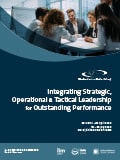An intensive professional development training course on
Mastering
Accounting, Budgeting
& Performance Measurement
Why Choose this Training Course?
The Structure
This comprehensive training course consists of two modules which can be booked as a 10-Day Training event, or as individual, 5-Day training courses.
Module 1 - Financial Bootcamp for Non-Financial Professionals
Module 2 - The Essentials of Budgeting & Cost Control
The Course Content
Module 1: Financial Bootcamp for Non-Financial Professionals
Day One: Business Organizations, Sources of Finance, the Finance Function
- The development of business organizations
- The role of Finance and the Finance Function
- Sources and types of finance for business organizations
Teamwork exercise: preparing a business plan to present to potential investors
- The development of business organizations
- The role of Finance and the Finance Function
- Sources and types of finance for business organizations
Teamwork exercise: preparing a business plan to present to potential investors
- The structure of the financial accounting system
- The Income Statement and Statement of Financial Position
- The development of business organizations
- The role of Finance and the Finance Function
- Sources and types of finance for business organizations
Teamwork exercise: preparing a business plan to present to potential investors
- The structure of the financial accounting system
- The Income Statement and Statement of Financial Position
Teamwork exercise: Financial accounting and reporting case study
Day Two: The Annual Financial Report
- The purpose and format of the Annual Financial Report (AFR), prepared according to IFRS.
- The financial and non-financial elements of the AFR
Teamwork exercise: Assessing the effectiveness of the AFR as a means of communicating with our key stakeholders
- The purpose and format of the Annual Financial Report (AFR), prepared according to IFRS.
- The financial and non-financial elements of the AFR
Teamwork exercise: Assessing the effectiveness of the AFR as a means of communicating with our key stakeholders
- The difference between cash flow and profit
- The purpose and format of the Annual Financial Report (AFR), prepared according to IFRS.
- The financial and non-financial elements of the AFR
Teamwork exercise: Assessing the effectiveness of the AFR as a means of communicating with our key stakeholders
- The difference between cash flow and profit
Teamwork exercise: Preparing and presenting a Cash Flow Statement
- The purpose and format of the Annual Financial Report (AFR), prepared according to IFRS.
- The financial and non-financial elements of the AFR
Teamwork exercise: Assessing the effectiveness of the AFR as a means of communicating with our key stakeholders
- The difference between cash flow and profit
Teamwork exercise: Preparing and presenting a Cash Flow Statement
- How to analyse and interpret the AFR
- The purpose and format of the Annual Financial Report (AFR), prepared according to IFRS.
- The financial and non-financial elements of the AFR
Teamwork exercise: Assessing the effectiveness of the AFR as a means of communicating with our key stakeholders
- The difference between cash flow and profit
Teamwork exercise: Preparing and presenting a Cash Flow Statement
- How to analyse and interpret the AFR
Teamwork exercise and presentation: Assessing a company’s performance and position by analyzing their AFR
Day Three: Management Accounting
- Understanding the difference between management accounting and financial accounting
- Calculating the cost of our products and the problem of overheads (indirect costs)
- Overhead apportionment – absorption costing versus Activity Based Costing
Teamwork exercise: Preparing cost estimates for a contract bid
- Understanding the difference between management accounting and financial accounting
- Calculating the cost of our products and the problem of overheads (indirect costs)
- Overhead apportionment – absorption costing versus Activity Based Costing
Teamwork exercise: Preparing cost estimates for a contract bid
- Cost-Volume-Profit and break-even analysis
- Budgeting – objectives and process
- Understanding the difference between management accounting and financial accounting
- Calculating the cost of our products and the problem of overheads (indirect costs)
- Overhead apportionment – absorption costing versus Activity Based Costing
Teamwork exercise: Preparing cost estimates for a contract bid
- Cost-Volume-Profit and break-even analysis
- Budgeting – objectives and process
Teamwork exercise: preparing next year’s budgets for a manufacturing business
- Understanding the difference between management accounting and financial accounting
- Calculating the cost of our products and the problem of overheads (indirect costs)
- Overhead apportionment – absorption costing versus Activity Based Costing
Teamwork exercise: Preparing cost estimates for a contract bid
- Cost-Volume-Profit and break-even analysis
- Budgeting – objectives and process
Teamwork exercise: preparing next year’s budgets for a manufacturing business
- Analysing the differences between budget and actual, using Variance Analysis
Day Four: Investment Appraisal
- The time value of money – future values and present values, perpetuities and growth
Group discussion: Identifying new investment opportunities for your business:
- The time value of money – future values and present values, perpetuities and growth
Group discussion: Identifying new investment opportunities for your business:
Teamwork exercise: Basic appraisal methods – Accounting Rate of Return and Payback
- The time value of money – future values and present values, perpetuities and growth
Group discussion: Identifying new investment opportunities for your business:
Teamwork exercise: Basic appraisal methods – Accounting Rate of Return and Payback
- The cost of capital - Equity and Debt
- The time value of money – future values and present values, perpetuities and growth
Group discussion: Identifying new investment opportunities for your business:
Teamwork exercise: Basic appraisal methods – Accounting Rate of Return and Payback
- The cost of capital - Equity and Debt
Teamwork exercise: Calculating the Weighted Average Cost of Capital (WACC)
- The time value of money – future values and present values, perpetuities and growth
Group discussion: Identifying new investment opportunities for your business:
Teamwork exercise: Basic appraisal methods – Accounting Rate of Return and Payback
- The cost of capital - Equity and Debt
Teamwork exercise: Calculating the Weighted Average Cost of Capital (WACC)
Teamwork exercise: Advanced appraisal methods – Net Present Value (NPV) and Internal Rate of Return (IRR):
- The time value of money – future values and present values, perpetuities and growth
Group discussion: Identifying new investment opportunities for your business:
Teamwork exercise: Basic appraisal methods – Accounting Rate of Return and Payback
- The cost of capital - Equity and Debt
Teamwork exercise: Calculating the Weighted Average Cost of Capital (WACC)
Teamwork exercise: Advanced appraisal methods – Net Present Value (NPV) and Internal Rate of Return (IRR):
- Dealing with capital rationing using the Profitability Index method
- Dealing with forecasting uncertainty using Sensitivity Analysis
- The time value of money – future values and present values, perpetuities and growth
Group discussion: Identifying new investment opportunities for your business:
Teamwork exercise: Basic appraisal methods – Accounting Rate of Return and Payback
- The cost of capital - Equity and Debt
Teamwork exercise: Calculating the Weighted Average Cost of Capital (WACC)
Teamwork exercise: Advanced appraisal methods – Net Present Value (NPV) and Internal Rate of Return (IRR):
- Dealing with capital rationing using the Profitability Index method
- Dealing with forecasting uncertainty using Sensitivity Analysis
Teamwork exercise: Comprehensive investment appraisal mini-case
Day Five: Treasury and Risk Management
- Interest rate risk
Group discussion: The role of Treasury
- Interest rate risk
Group discussion: The role of Treasury
- Managing interest rate risk using options and swaps
- Interest rate risk
Group discussion: The role of Treasury
- Managing interest rate risk using options and swaps
Teamwork exercise: Devising an effective interest rate swap
- Interest rate risk
Group discussion: The role of Treasury
- Managing interest rate risk using options and swaps
Teamwork exercise: Devising an effective interest rate swap
- Foreign currency risk
- Managing foreign currency risk using natural techniques
- Managing foreign currency risk using transactional techniques
- Interest rate risk
Group discussion: The role of Treasury
- Managing interest rate risk using options and swaps
Teamwork exercise: Devising an effective interest rate swap
- Foreign currency risk
- Managing foreign currency risk using natural techniques
- Managing foreign currency risk using transactional techniques
Teamwork exercise: Hedging the risks of a foreign currency transaction
Module 2: The Essentials of Budgeting & Cost Control
Day Six: The Role of Budgeting & Cost Control
- The complexity of managing contemporary organizations
- Strategic planning, budgeting and management control systems
- The key elements of budgeting: objectives, initiatives and resources
- Understanding the context for budgeting & the role of the controller
- What are the advantages and the disadvantages of budgeting
- What is it the situation in your organization? How to improve it?
Day Seven: Budgeting and Cost Control
- What are the essential inputs of the budgeting process?
- What is zero-based budgeting?
- Costing for budgeting: key terms and concepts
- Variable vs. Fixed costs
- The important role of contribution margin
- Cases, problems and examples
Day Eight: Costing: From Traditional to Activity-Based
- Complementing traditional costing with activity-based costing
- Direct vs. indirect cost
- Cost allocation: traditional costing and activity-based costing (ABC)
- From traditional budgeting to Activity-based budgeting (ABB)
- The importance of costs analysis
- Cases, problems and exercises
Day Nine: Capital Budgeting
- Capitalized vs. period costs
- Capital budgeting
- Payback period
- Net-present value
- Internal rate of return
- What is it the situation in your organization?
Day Ten: Beyond the Budgets: linking financial and non-financial KPIs
- What are the limits of budgeting and financial reporting?
- What are the drivers of the business model?
- What are the trades-off in place?
- Beyond budgeting: integrating financial and non-financial issues
- The balanced scorecard and KPIs
- Case, problems and examples
The Certificate
DO YOU WANT TOLEARN MORE ABOUT THIS COURSE?
© 2024. Material published by AZTech shown here is copyrighted. All rights reserved. Any unauthorized copying, distribution, use, dissemination, downloading, storing (in any medium), transmission, reproduction or reliance in whole or any part of this course outline is prohibited and will constitute an infringement of copyright.



